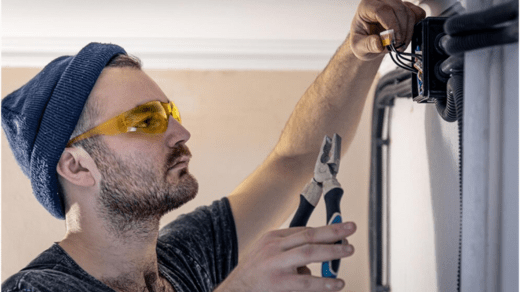Maintaining optimal climate control in your home is not just about comfort; it’s also about efficiency and cost-effectiveness. As seasons change, ensuring your heating and cooling systems are in peak condition becomes crucial. This article explores the importance of balancing heating maintenance and air conditioner replacement to achieve efficient home climate control.
Importance of Heating Maintenance
Heating systems are essential, especially in colder climates where winters can be harsh. Regular heating maintenance ensures that your system operates efficiently, reducing energy consumption and prolonging its lifespan. Here are key aspects of heating maintenance:
1. Regular Inspections and Tune-Ups: Scheduling annual inspections and tune-ups for your heating system by qualified professionals is vital. They can detect and address minor issues before they escalate into costly repairs. Routine maintenance includes checking for leaks, cleaning filters, and optimizing performance.
2. Energy Efficiency: A well-maintained heating system operates more efficiently, using less energy to heat your home. This not only reduces utility bills but also minimizes your carbon footprint, contributing to environmental sustainability.
3. Improved Indoor Air Quality: Properly maintained heating systems contribute to better indoor air quality by preventing the buildup of dust, mold, and allergens. Clean filters and ducts ensure that the air circulating in your home is healthier for you and your family.
4. Enhanced Safety: Regular maintenance includes inspecting for any potential safety hazards such as gas leaks or carbon monoxide emissions. Ensuring that your heating system operates safely is paramount for your family’s well-being.
Knowing When to Replace Your Air Conditioner
While heating is crucial in winter, air conditioning becomes essential during hot summer months. Knowing when to replace your air conditioner is equally important to maintain comfort and efficiency. Here are signs it might be time for an air conditioner replacement:
1. Age of the System: Air conditioners typically last 10-15 years with proper maintenance. If your system is nearing or past this age, replacing it could significantly improve efficiency and reliability.
2. Increased Energy Bills: As air conditioners age, they often become less efficient, leading to higher energy bills. A new, energy-efficient unit can reduce cooling costs and provide better performance.
3. Frequent Repairs: If you find yourself frequently calling for repairs or if the repair costs are becoming substantial, replacing the unit might be more cost-effective in the long run.
4. Inconsistent Cooling: If certain rooms in your home are consistently hotter or cooler than others, or if your current system struggles to maintain a comfortable temperature, it could indicate that it’s time for an upgrade.
Achieving Balance for Efficient Climate Control
Balancing heating maintenance and air conditioner replacement ensures that your home remains comfortable year-round without unnecessary energy expenses or system breakdowns. Here’s how you can achieve this balance:
1. Schedule Regular Maintenance: Stay proactive with both your heating and cooling systems by scheduling regular maintenance appointments. This ensures they operate efficiently and helps you catch potential problems early.
2. Plan for Upgrades: Keep track of the age and performance of your heating and cooling systems. Plan and budget for replacements before they become urgent needs, allowing you to take advantage of off-season discounts and promotions.
3. Invest in Energy Efficiency: When replacing your air conditioner, opt for energy-efficient models that bear the ENERGY STAR® label. These units consume less energy while providing the same level of comfort, ultimately saving you money on utility bills.
4. Consult HVAC Professionals: HVAC professionals can provide valuable insights and recommendations tailored to your home’s specific needs. They can assess your current systems, suggest improvements, and guide you through the replacement process.
Conclusion
Efficient home climate control requires a proactive approach to both heating maintenance and air conditioner replacement. By staying ahead with regular maintenance and knowing when to upgrade your systems, you can ensure comfort, energy savings, and peace of mind throughout the year. Take the time to invest in the longevity and efficiency of your home’s heating and cooling systems—it’s an investment that pays off in comfort and cost savings over time.




